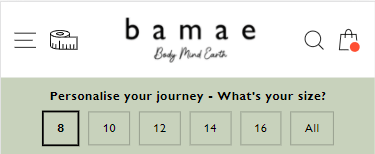We all rely on a constant stream of information to shape us. It's an entirely natural process that's frequently seen in the animal kingdom - learn and adapt to your environment and you survive. Creating an internal map of the world around you is both subconscious and invaluable, yet this process can sometimes trip us up. Informational humility (how open we are to the concept of self-improvement and change, often through outside feedback) is at the forefront of focus in this world of stress and conflict. We want to learn how to be the best version of ourselves but the answers are lost in a sea of information. Many of us are realising that to continue growing we have to unlearn many of our old habits. We are the most intellectually superior version of ourselves so far, but we will forever be on a long journey of constant learning.
Russell Ackov: “the only thing that’s harder than starting something new, is stopping something old”.

As we grow the world around us grows too - the jokes we used to tell our friends no longer earn us laughs as they once did, and the ways we act eventually becomes outdated. This isn't to suggest we need a complete identity change, or that the ways we were as children was wrong or bad. No longer useful does not equate to bad - we shouldn’t completely disregard our past actions as separate from us because this also removes our chance to learn. It's a good sign when we feel a degree of separation from our younger selves, but it's also worth considering what goals your younger self-managed to achieve, what good they did with the resources they had.
It’s ok to be wrong!

There is something empowering in being able to own up to mistakes and show a willingness to grow but it’s often easier said than done. It can be tough to unlearn something, especially if it's a point of personal pride, as it can often feel like we are throwing away something valuable. There is evidence to suggest that we are more likely to maintain certain beliefs even if we know they’re false if this can fill gaps in our knowledge. There are times that it's simply more convenient to hold onto misinformation. This is especially true if it feels like we worked hard to reach that point- it feels wasteful to forget something we invested time into.
Ultimately if the skill is no longer useful, then unlearning it can stop you from stagnating. You most likely took that time to learn because you believed it would be worth the cost, and I’m sure it was useful at the time- but that doesn’t mean it’s useful now. It's important to take an active role in your own growth to avoid feeling unsatisfied.
Studies have found that higher levels of believed intellectual superiority correlate to a greater gap in actual ability. We are often taught that being wrong is humiliating and something to be avoided. Being wrong can feel like a personal failure, and no one wants to admit when they make a mistake. It’s important to remember that it's not just okay to be wrong, it's essential to be wrong. If our pride and identity ride on always being correct then we are setting ourselves up for failure on a far bigger scale. Emotional humility is understanding that there is always more to learn, and being prepared to adapt accordingly.
Understand your motives

We often commit to an action to feel good about ourselves- it's more about the rush of endorphins than it is doing the right thing. This is a pretty standard state of affairs, but it can lead to feelings of superiority if we aren't careful. I personally don’t think it's fair to criticise ourselves for having selfish motives- we are taught from a young age to do good things and be rewarded, we simply learn according to the systems around us.
Many choices are driven by ego- even some of the healthier ones. We are far less likely to evaluate our behaviour if we consider ourselves to be insightful and emotionally intelligent. What reason would you have to change yourself when you already have the answers? Even if this is the case, it's important to continue to receive feedback from those around you and evaluate not only how you act but the reasons why.
Feedback: Ask people you trust

Even if we try our absolute best, there are moments when we simply can’t keep up with the precedent we set for ourselves. We may snap when we think ourselves patient and lash out when we are usually kind. This is normal, we can't always control every aspect of ourselves and it's only human to be swept away in the moment. However, it can be beneficial to have a good grasp on why we behave a certain way, and if there are measures we can take to avoid getting caught out again.
Research suggests that people with higher intelligence are quicker to learn and replace mental stereotypes, meaning that they are quick to interpret information and update their internal biases effectively. It's nearly impossible to remove judgemental parts of our minds- as it’s integral to our survival and keeps us on the lookout. Nevertheless, being able to quickly change our internal judgments keeps us from getting set in our beliefs- educational humility is what allows us to keep learning.
A good way to check yourself is to ask the people around you. If the relationship is open and honest, they will indicate to you if there is anything amiss. That being said, going into this means you will need to be prepared to receive honest answers about yourself. Sounds easy enough, but no one likes to be given criticism, so try to remember that honesty is a good thing. If a friend tells you that they want you to improve it’s because they want good things for you, not misery and ruin. It can feel personal when those around us don’t agree and support everything we say and do, but if the people that know us best can't be honest about how they feel, then what hope is there?
Reframing the way we think

Neuro-Linguistic programming (or NLP) is a set of skills that help you to understand your own mind, often in regards to low self-esteem or trauma-related experiences. We can learn to correct our vocabulary and perspective of an event by reframing what happened in a positive light.
The general idea is that successful behaviours and thoughts can be identified and then taught to others.
This can be beneficial in time management, self-esteem, or tackling phobias. There are many areas of our personality that we can develop by carefully evaluating where the limits are. Rather than ruminating on past mistakes, we instead see them as learning opportunities and cherish the successes. Try comparing your experiences with how you have interpreted them. By evaluating the things you did right, you can then start to use these habits as a strong foundation for future growth. We can help this process along with a technique known as anchoring. By y picturing a memory or having a physical memento to create a positive association, we can reframe our thinking in a more positive light. If positive reframing becomes second nature, it can greatly support emotional growth in the future.
There is a lot to unpack here, and much of it is on a personal level. One of the biggest pieces of advice to take away from this is to be fair to yourself. You made it here, and you made the best choices you could. It’s easy to forget how much we do in our day to day life, because much of it becomes part of subconscious routine. We discuss and learn, work hard and engage, even when we don’t particularly feel motivated to do so. Any missed opportunities or mistakes that you make are simply part of this constantly changing learning process, and nobody’s perfect. It’s not that you haven’t met your goal, you simply haven’t met it yet.




